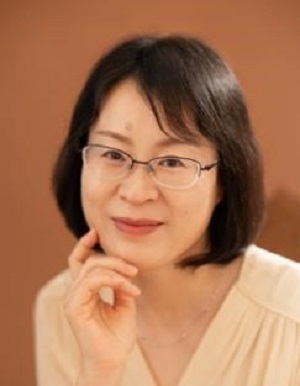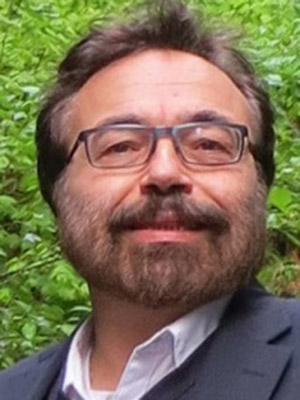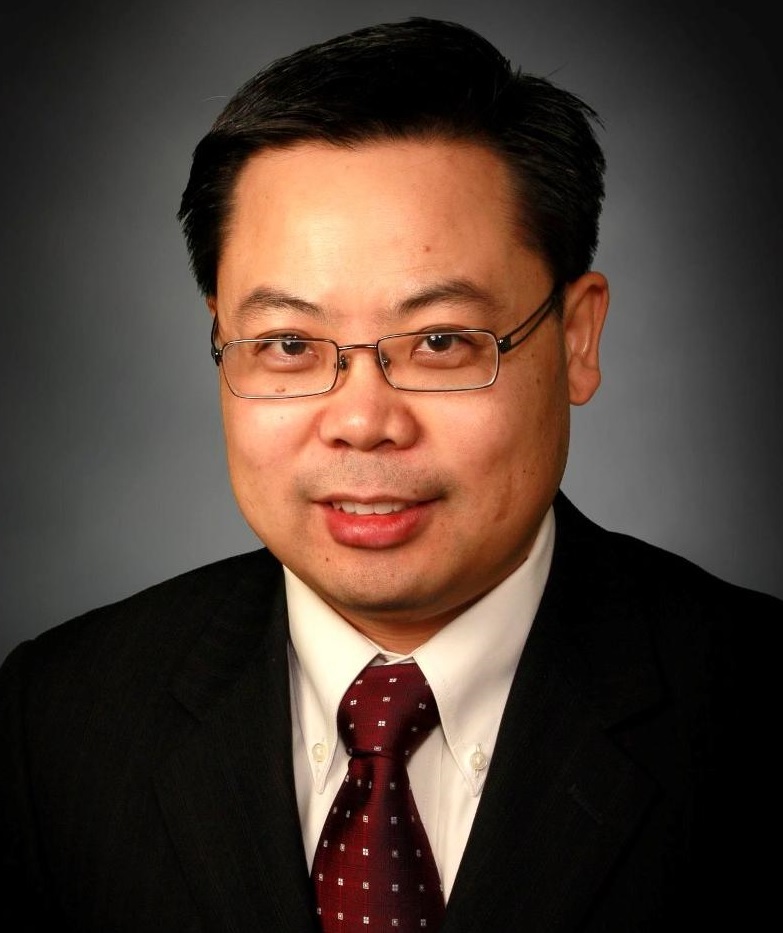






Xiuzhen Cheng (IEEE Fellow)
Professor, Shandong University (NTU), China.
Distinguished Lecture Title: Decentralized Storage Networking
Time: 11:00am-12:0pm, Monday, Feberuary 19, 2024
Abstract:
Decentralized Storage Networks (DSNs) can gather storage resources from mutually untrusted providers to form worldwide decentralized file systems. Compared to traditional storage networks, DSNs are built on top of blockchains, which can incentivize service providers to contribute their unused storage spaces and ensure strong security. However, pioneering DSNs still face challenges in many aspects such as multi-version file management, data privacy, and weak byzantine resiliency. In this talk, we will report three of our recent works, namely FileDAG, FileDES and BFT-DSN, which intend to overcome the above challenges in designing DSNs. Specifically, FileDAG is built on a DAG-based blockchain to support file-level deduplication in storing multi-versioned files while relying on a two-layer DAG-based blockchain ledger to provide flexible and storage-saving file indexing; FileDES (Decentralized Encrypted Storage) extends FileDAG from multiple aspects, incorporating data security, system scalability, and proof succinctness respectively with file encryption, a lightweight proof of encrypted storage algorithm (PoES), and a succinct multi-version verification method. BFT-DSN combines storage-weighted BFT consensus with erasure coding and incorporates homomorphic fingerprints and weighted threshold signatures for decentralized verification, achieving optimal Byzantine resilience in DSN. Open research challenges and future research directions will also be discussed.
Biography:
Dr. Xiuzhen Cheng is a Professor of Computer Science at Shandong University. From Sep 2002 to Aug 2020, she was a faculty member at The George Washington University, USA. She served as a Program Director at NSF of the US from April 2006 to October 2006 (full time) and from April 2008 to April 2010 (part-time). Her research focuses on the broad area of distributed and trusted computing, particularly in blockchain computing, edge intelligence, and IoT security. Dr. Cheng was the founder and steering committee chair of the International Conference on Wireless Algorithms, Systems, and Applications (WASA, 2006-2022). She now is the founding EiC of the High-Confidence Computing Journal (launched in 2021). She served/is serving on the editorial boards of several technical journals (e.g. IEEE Transactions on Computers and IEEE Transactions on Wireless Communications) and the technical program committees of many professional conferences/workshops (e.g. ACM Mobihoc, ACM Mobisys, IEEE INFOCOM, IEEE ICDCS, IEEE/ACM IWQoS). She also chaired several international conferences (e.g. ACM Mobihoc'14). Dr. Cheng is a Fellow of IEEE, a Fellow of CSEE (Chinese Society for Electrical Engineering), and a Fellow of AAIA (Asia-Pacific Artificial Intelligence Association). Her current H-Index is 67, and the total number of Google Citations is 19,000+.

Georgios Giannakis (IEEE Fellow)
Endowed Chair Professor, University of Minnesota, USA
Distinguished Lecture Title: Topology ID and Learning over Graphs: Nonlinearities and Dynamics
Time: 10:00am-11:00am, Monday, February 19, 2024
Abstract:
Learning the topology of graphs as well as processes evolving over graphs are tasks emerging in application domains as diverse as gene-regulatory, brain, power, and social networks, to name a few. Scalable approaches to deal with such high-dimensional settings aim to address the unique modeling and computational challenges associated with data-driven science in the modern era of big data analytics. Albeit simple and tractable, linear time-invariant models are limited as they are incapable of modeling changing topologies, as well as nonlinear and dynamic dependencies between nodal processes. To this end, novel approaches are presented to leverage nonlinear counterparts of partial correlation and partial Granger causality, as well as nonlinear structural equations and vector auto-regressions, along with attributes such as low rank, sparsity, and smoothness to capture even directional dependencies with abrupt change points, as well as dynamic processes over possibly time-evolving topologies. The unifying framework inherits the versatility and generality of kernel-based methods, and lends itself to batch and computationally affordable online learning algorithms, which include novel Kalman filters and smoothers over graphs. Real data experiments highlight the impact of the nonlinear and dynamic models on gene-regulatory and functional connectivity of brain networks, where connectivity patterns revealed exhibit discernible differences relative to existing approaches.
Biography:
GEORGIOS B. GIANNAKIS received his Diploma in Electrical Engr. (EE) from the Ntl. Tech. U. of Athens, Greece, 1981. From 1982 to 1986 he was with the U. of Southern California (USC), where he received his MSc. in EE, 1983, MSc. in Mathematics, 1986, and Ph.D. in EE, 1986. He was with the U. of Virginia from 1987 to 1998, and since 1999 he has been with the U. of Minnesota (UMN), where he held an Endowed Chair of Telecommunications, served as director of the Digital Technology Center from 2008-21, and since 2016 he has been a UMN Presidential Chair in ECE.
His interests span the areas of statistical learning, communications, and networking - subjects on which he has published more than 495 journal papers, 800 conference papers, 26 book chapters, two edited books and two research monographs. Current research focuses on Data Science with applications to IoT, and power networks with renewables. He is the (co-) inventor of 36 issued patents, and the (co-)recipient of 10 best journal paper awards from the IEEE Signal Processing (SP) and Communications Societies, including the G. Marconi Prize (h-index=160 and more than 91,000 citations). He received the IEEE-SPS Norbert Wiener Society Award (2019); EURASIP's A. Papoulis Society Award (2020); Technical Achievement Awards from the IEEE-SPS (2000) and from EURASIP (2005); the IEEE ComSoc Education Award (2019); and the IEEE Fourier Technical Field Award (2015). He is a member of the Academia Europaea, Greece's Academy of Athens, and Fellow of the National Academy of Inventors, the European Academy of Sciences, UK's Royal Academy of Engineering, Life Fellow of IEEE, and EURASIP. He has served the IEEE in a number of posts, including that of a Distinguished Lecturer for the IEEE-SPS.

Xianbin Wang (IEEE Fellow)
Western University, Canada
Distinguished Lecture Title: Realizing 6G: Objectives, Technical Challenges and Enabling Technologies of Future Networks
Time: 17:00pm-18:00pm, Monday, Feberuary 19, 2024
Abstract:
The massive deployment of the fifth generation (5G) wireless networks are significantly accelerating the ongoing process of industrial and societal transformation. Disregard many impressive achievements, current scenario-specific, and communication-centric 5G technologies still face many challenges in empowering future applications with diverse requirements under stringent resource constraints. The fundamental design consideration of the sixth generation (6G) networks is how to identify and meet its application-specific operational goals with constrained communication and computing capabilities and resources.
The focus of this presentation is to analyze the technical challenges of 6G, identify the essential key enabling technologies, and present the related ongoing research activities and future development directions. Different perspectives of the 6G networks, including the 6G operational goals, key performance indicators (KPIs), and emerging technologies, are analyzed and presented. Our recent research activities on 6G including multi-dimensional multiple access, network synchronization, integrated sensing and communication as well as value-oriented operations will be presented.
Biography:
Xianbin Wang (Fellow, IEEE) received his Ph.D. degree in electrical and computer engineering from the National University of Singapore in 2001.
He is a Professor and a Tier-1 Canada Research Chair in 5G and Wireless IoT Communications with Western University, Canada. Prior to joining Western University, he was with the Communications Research Centre Canada as a Research Scientist/Senior Research Scientist from 2002 to 2007. From 2001 to 2002, he was a System Designer at STMicroelectronics. His current research interests include 5G/6G technologies, Internet of Things, machine learning, communications security, and intelligent communications. He has over 600 highly cited journals and conference papers, in addition to over 30 granted and pending patents and several standard contributions.
Dr. Wang is a Fellow of the Canadian Academy of Engineering and a Fellow of the Engineering Institute of Canada. He has received many prestigious awards and recognitions, including the IEEE Canada R. A. Fessenden Award, Canada Research Chair, Engineering Research Excellence Award at Western University, Canadian Federal Government Public Service Award, Ontario Early Researcher Award, and nine Best Paper Awards. He was involved in many IEEE conferences, including GLOBECOM, ICC, VTC, PIMRC, WCNC, CCECE, and CWIT, in different roles, such as General Chair, TPC Chair, Symposium Chair, Tutorial Instructor, Track Chair, Session Chair, and Keynote Speaker. He serves/has served as the Editor-in-Chief, Associate Editor-in-Chief, and editor/associate editor for over ten journals. He was the Chair of the IEEE ComSoc Signal Processing and Computing for Communications (SPCC) Technical Committee and is currently serving as the Central Area Chair of IEEE Canada.